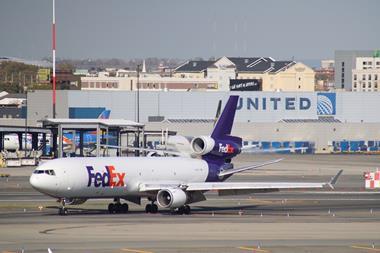Customs regulations can be a minefield for the unwary shipper, be it edible insects in Europe, chewing gum in Singapore and rubber gloves in the US.
So parcels giant FedEx has come up with eight “surprising” Customs rules for small businesses setting out to conquer the world of exports.
It was compiled by Harald Schoenfelder, managing director global trade services for FedEx Express Europe, Middle East, Indian Subcontinent and Africa.
Says Schoenfelder: “We decided to compile some of the most unusual and surprising rules and scenarios that exist across the shipping market. These go to show just how varied – and sometimes unexpected – countries’ customs regulations can be.”
Customs procedures are in constant flux, says Schoenfelder, and each product has different rules associated with it, adding that the European Commission’s market access database is a good starting point.
“We appreciate that it can be tricky to get to grips with each and every export rule, so you’ll need to plan on a country-by-country basis, and source a trusted resource. Our selection of unexpected regulations will give you a flavour of the kind of rules that are out there.”
Edible insects are trending – but imports of such insects are not yet allowed in all European Union countries due to variations in food safety rules. Belgium approved 10 insects for human consumption in 2014, and in November the first insect meat offers were available in supermarkets and restaurants.
Amateur sports in France are becoming increasingly regulated compared to other European countries. France no longer allows the import of creatine, a product which helps with the building up of muscles.
As the sixth biggest wine-consuming country in the world, you might be forgiven for thinking that it would be easy to export wine from other European Union member states to the UK. But that’s not the case. When shipping alcohol from an EU member state to a private individual in the UK, there are strict rules that apply.
There’s no use crying over spilt milk, if you’re exporting to China. While you can ship baby formula to private individuals, the quantity is limited to six cans for personal use.
You must register as an exporter with the Chinese authorities. Other parties, such as the manufacturer, have to be registered and obtain approval from the Chinese government as well.
Adds Schoenfelder: “Rules and regulations change all of the time. So even if you’ve exported to a country once, do not assume the rules will remain the same six months later.
“Not all products are what they seem. For instance, one of our customers wanted to ship rubber fingers from France to the US. But as they were to be used as part of poultry feather removal machinery, they were not classified as glove parts.
“The correct customs classification was “machinery for the preparation of meat or poultry”.
Shipping chewing gum into Singapore is prohibited, although exceptions are made for dental hygiene and medicinal purposes under licence.
And, if you’re looking to send zip fasteners to India, you’ll be required to state the length, teeth material and colour of the zips.
Did you find this article of interest, if so why not register for a FREE digital subscription to Air Cargo News? - Find out more










